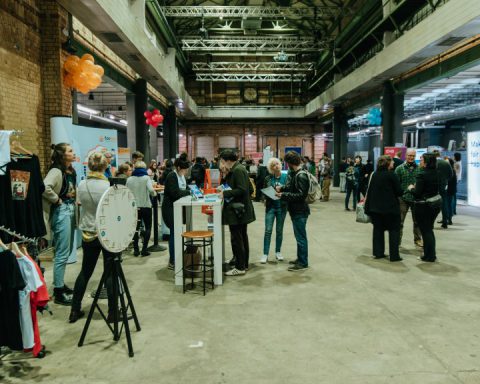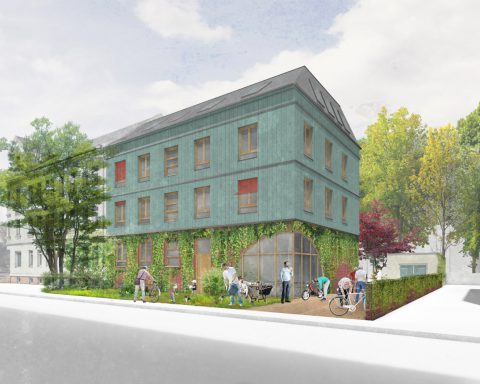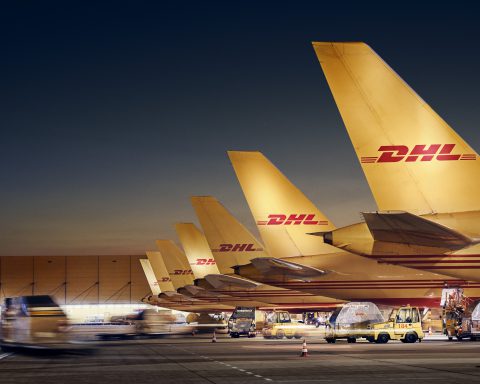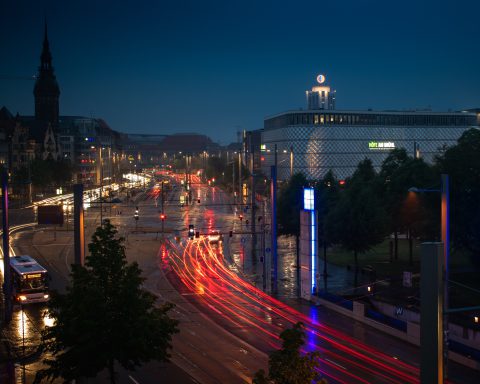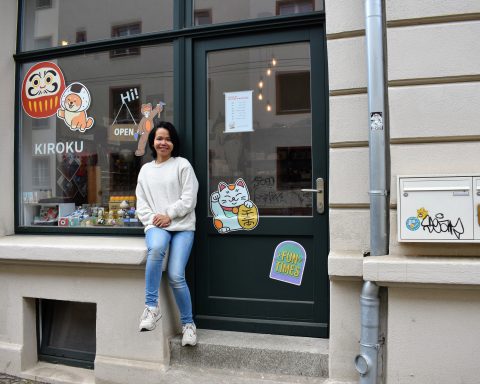What do you usually do when you need something nowadays? You google and buy it through an online store – often Amazon. And why shouldn’t you? It’s easy, it’s fast and it’s exactly what you wanted.
Digitalization is a game-changer for the retail market, as it has been for so many industry sectors. Through the analysis of customer data, online shops are able to provide a very personal shopping experience, tailored directly to the respective person’s needs.

Fashion shops like About You present you with complete outfits matching your style, if you buy a couch you’re shown the table that goes with it, and on every site you see ads tailored to your personal shopping behavior. Because people have grown accustomed to this kind of service, their demands in terms of shopping experience have risen – and the traditional retail market is feeling it.
Only every third stationary retailer is content with its sales. While e-commerce is growing in a double-digit margin annually, stationary retailers can’t even meet expectations during holiday shopping time.
The only way for store survival is to adapt to the changes coming with digitalization – and using them to one’s advantage.
It has, however, taken the German retail industry far too long to accept this reality. Instead of closing stores and using the online tools now available to their advantage, big retailers kept opening new stores in an attempt to outrun their competitors. Especially fashion retailers have nearly ruined themselves with this practice, with even big chain stores like Esprit and Gerry Weber struggling to stay above water.
What the German retail market needs is innovation and people willing to take new paths. Germany’s economy has generally been slow to catch on to the rapid technological advances, which make a lot of business models obsolete.
The German startup scene is, however, growing – and with it the potential for innovation.
One of these innovations is the pop-up store. Fashion labels and other retailers use (temporarily) vacant spaces like old factory buildings, ice cream parlors and other unusual places to “pop up.” The stores only stay for a limited amount of time, and are often only advertised by word of mouth. This strategy creates an air of exclusivity and prompts quick decisions to buy. Pop-up stores are low in cost for the retailer, and also give the owner of the spaces the opportunity to make money.

The possibilities of this concept have also been recognized in Leipzig. Stores like Von mir zu Dir and Buntimo popped up in the city center, where space would normally have been far too expensive. And another exciting store will soon pop up – this time right in the Höfe am Brühl.
Together with Basislager Coworking and Code Camp Leipzig, the shopping mall is organizing a “retail hackathon” on 18 and 19 October 2019.
This design challenge will give young innovators the chance to form teams and create a concept for a pop-up store deserving of the title “store of the future.”
The winners will get a meeting with Höfe am Brühl management to talk over their idea. Everyone with a skill pertinent to this challenge can apply, solo or in a pre-made team.
Applications are open until 7 October 2019. You can find more information on the event website.


